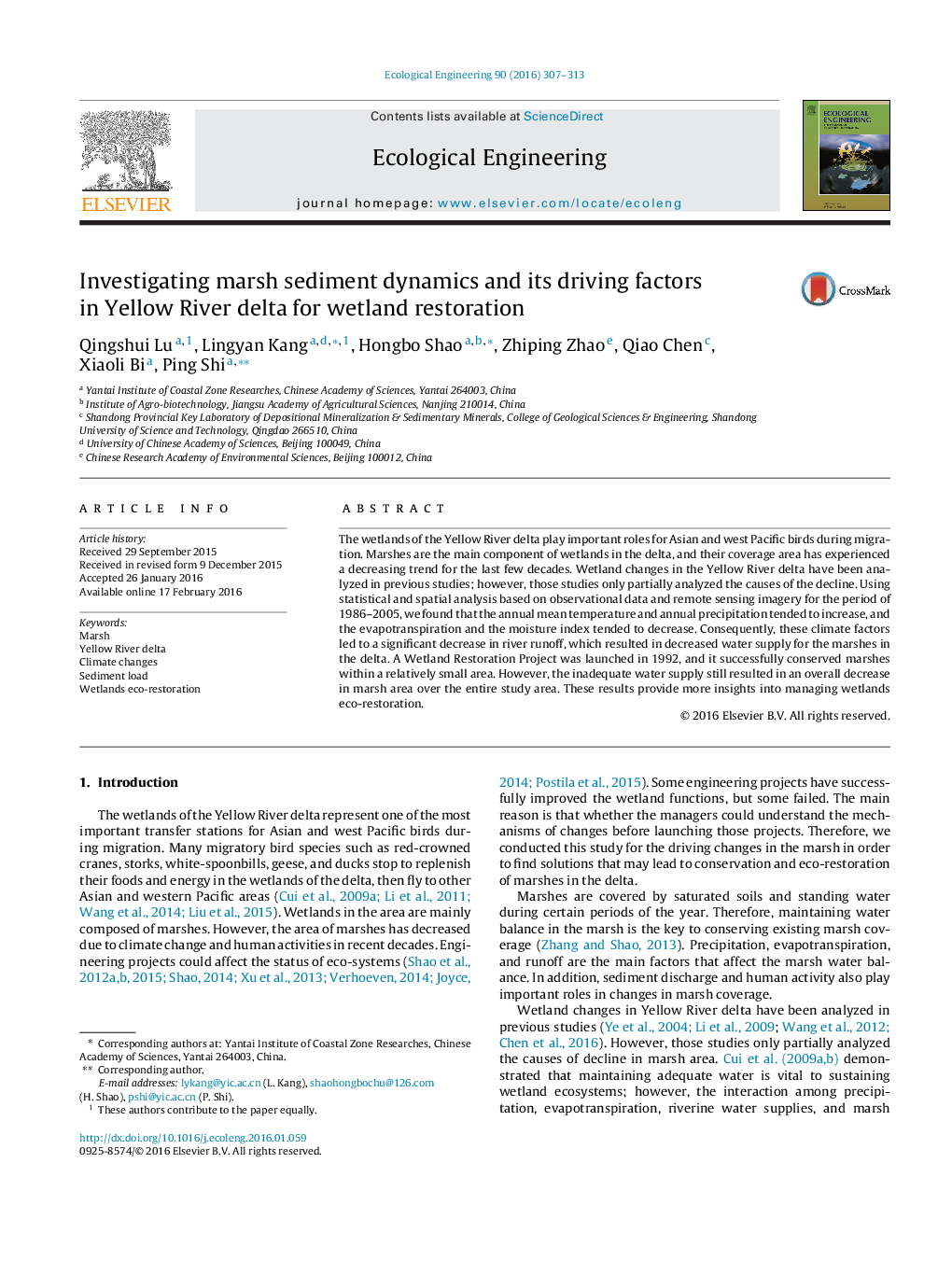| Article ID | Journal | Published Year | Pages | File Type |
|---|---|---|---|---|
| 4388674 | Ecological Engineering | 2016 | 7 Pages |
The wetlands of the Yellow River delta play important roles for Asian and west Pacific birds during migration. Marshes are the main component of wetlands in the delta, and their coverage area has experienced a decreasing trend for the last few decades. Wetland changes in the Yellow River delta have been analyzed in previous studies; however, those studies only partially analyzed the causes of the decline. Using statistical and spatial analysis based on observational data and remote sensing imagery for the period of 1986–2005, we found that the annual mean temperature and annual precipitation tended to increase, and the evapotranspiration and the moisture index tended to decrease. Consequently, these climate factors led to a significant decrease in river runoff, which resulted in decreased water supply for the marshes in the delta. A Wetland Restoration Project was launched in 1992, and it successfully conserved marshes within a relatively small area. However, the inadequate water supply still resulted in an overall decrease in marsh area over the entire study area. These results provide more insights into managing wetlands eco-restoration.
